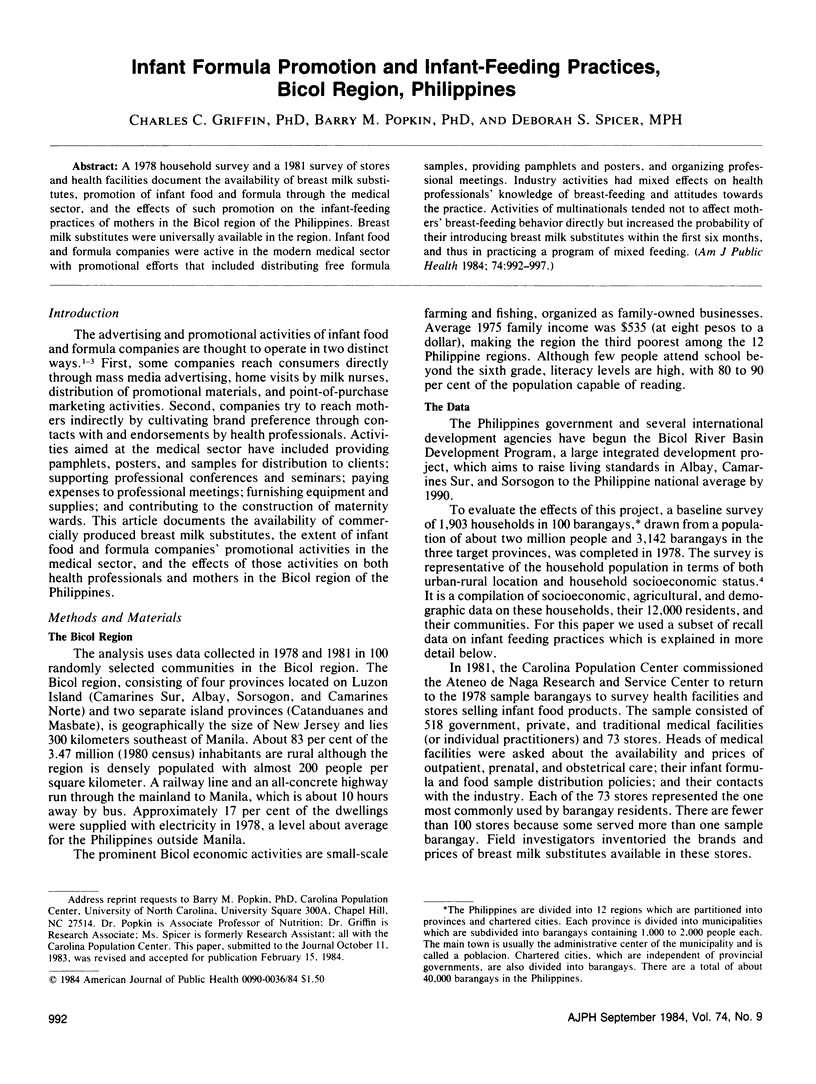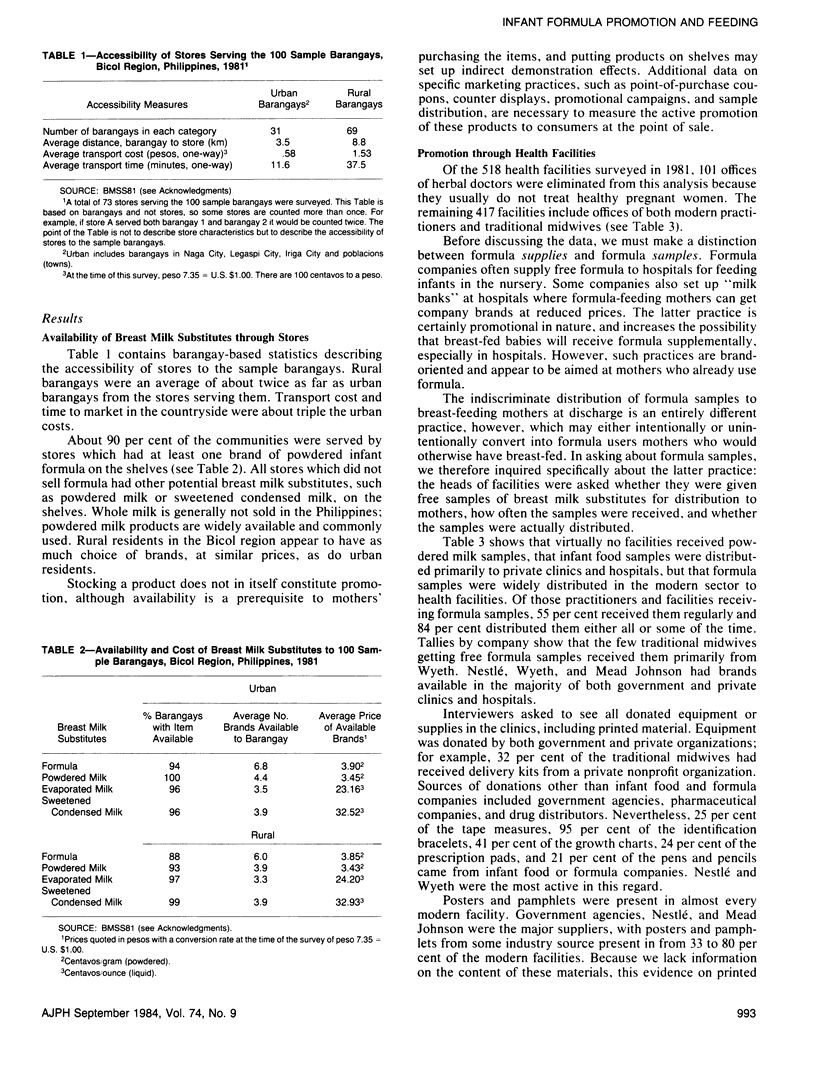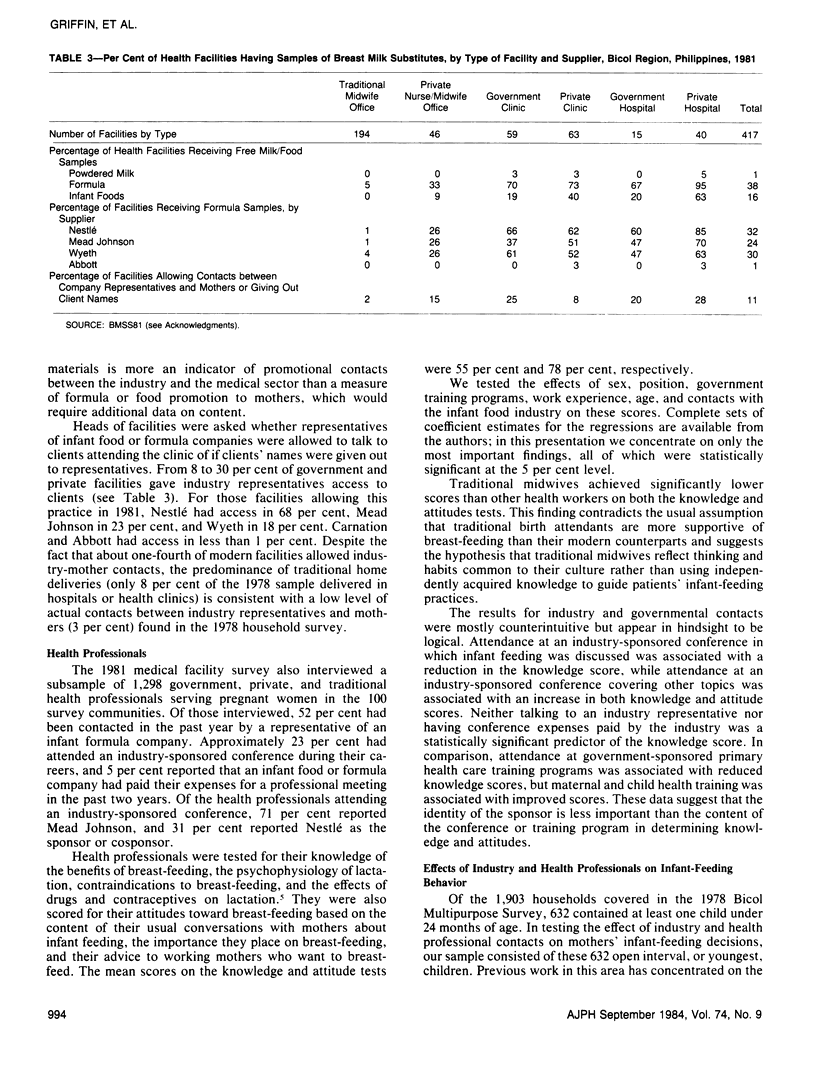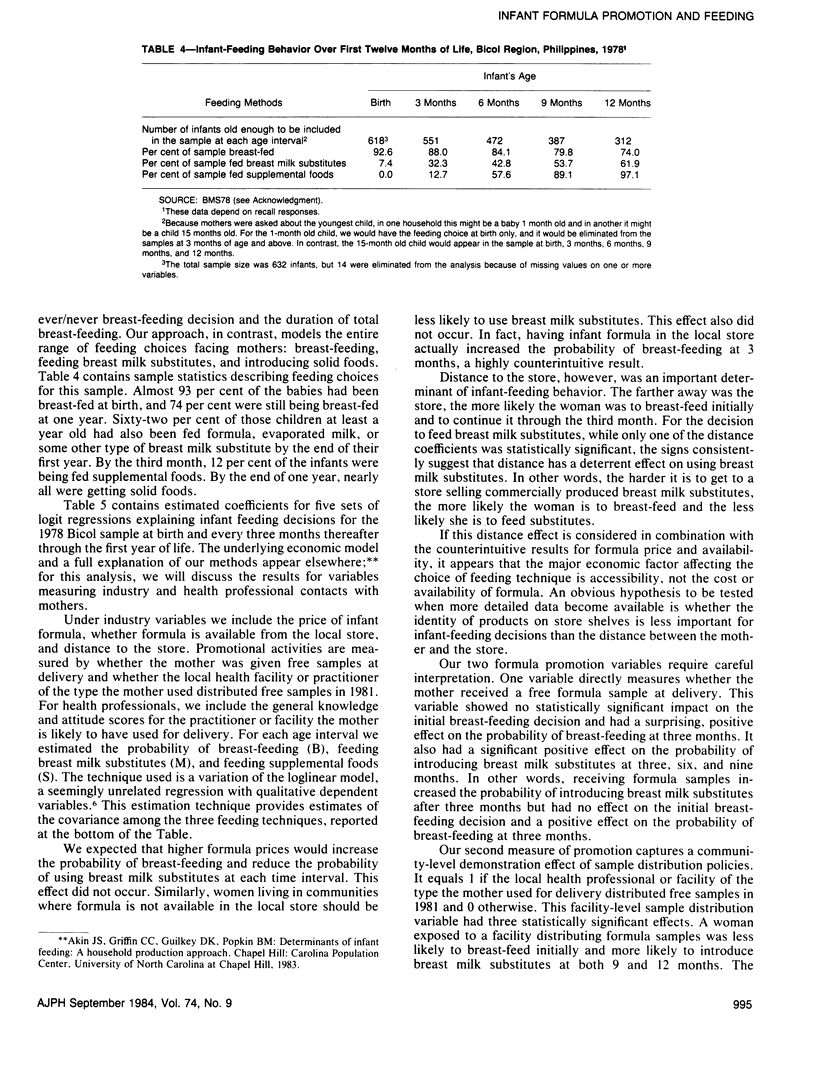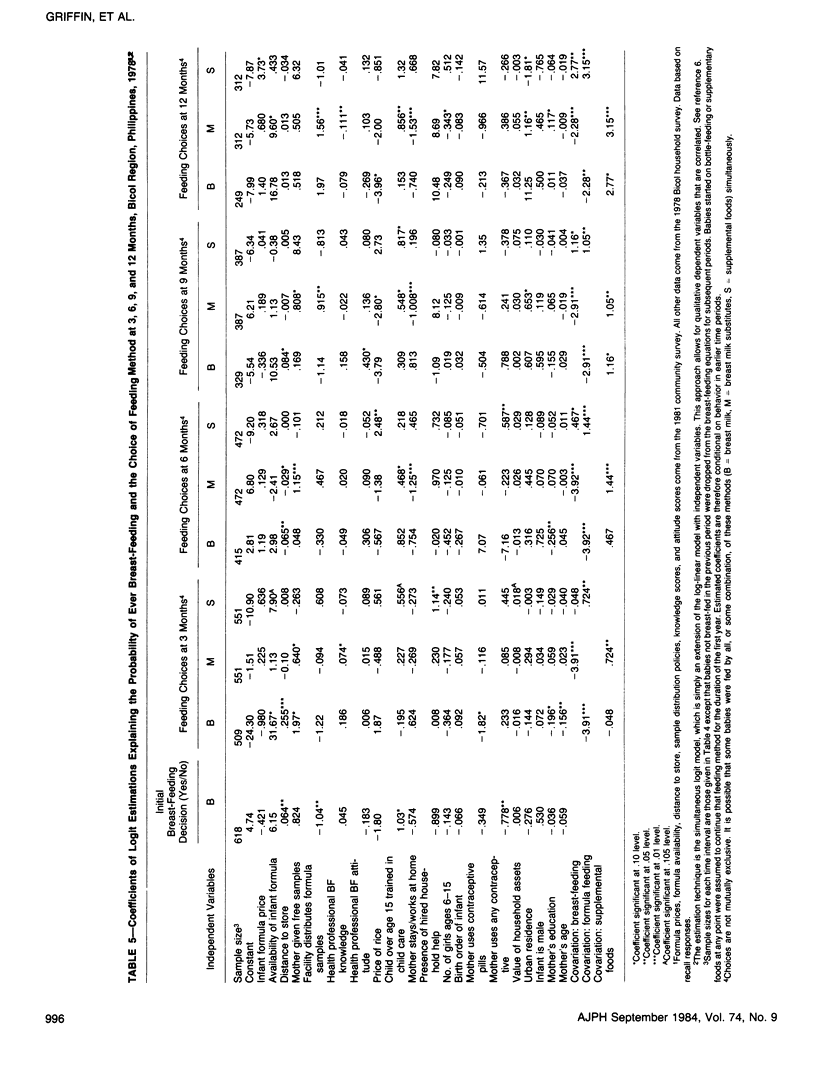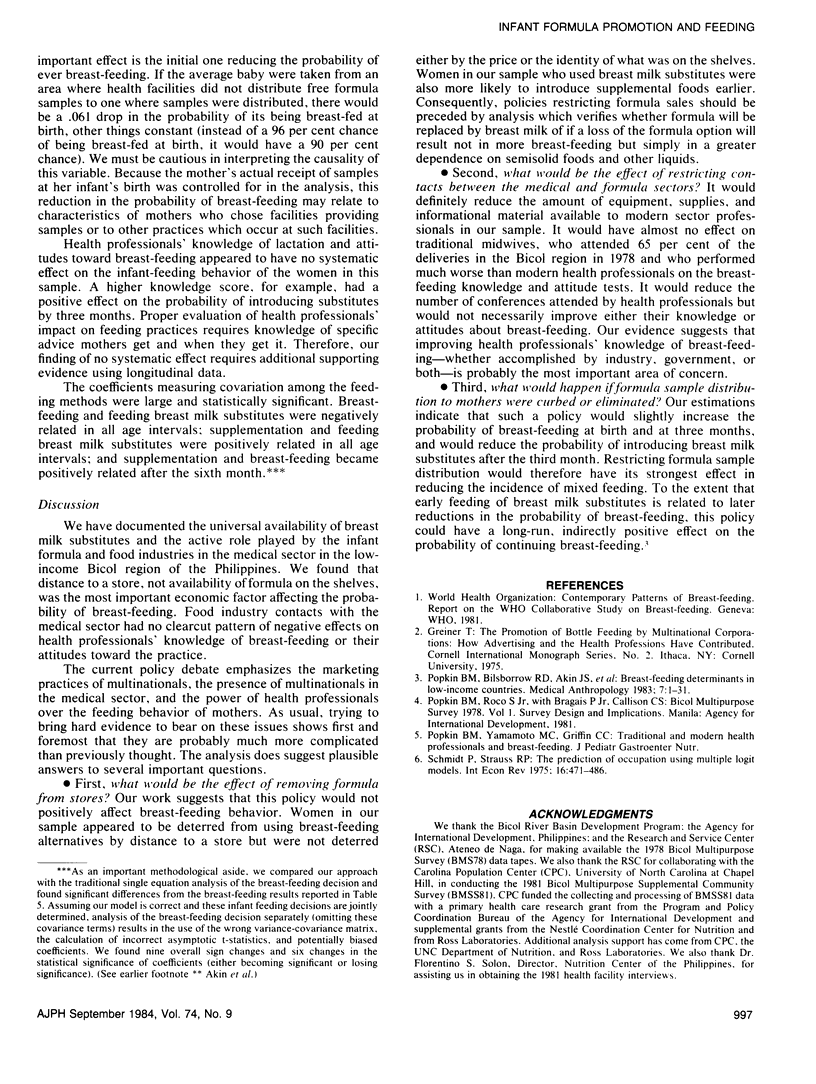Abstract
A 1978 household survey and a 1981 survey of stores and health facilities document the availability of breast milk substitutes, promotion of infant food and formula through the medical sector, and the effects of such promotion on the infant-feeding practices of mothers in the Bicol region of the Philippines. Breast milk substitutes were universally available in the region. Infant food and formula companies were active in the modern medical sector with promotional efforts that included distributing free formula samples, providing pamphlets and posters, and organizing professional meetings. Industry activities had mixed effects on health professionals' knowledge of breast-feeding and attitudes towards the practice. Activities of multinationals tended not to affect mothers' breast-feeding behavior directly but increased the probability of their introducing breast milk substitutes within the first six months, and thus in practicing a program of mixed feeding.
Full text
PDF